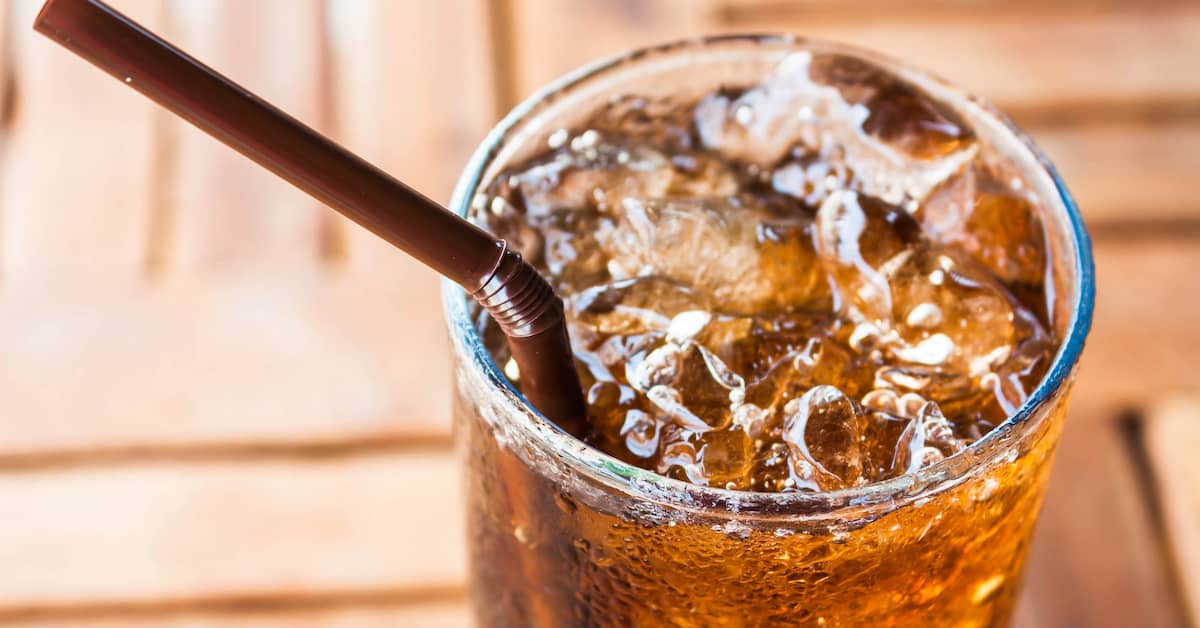
Some say it’s better to slurp down a diet soda than to drink one laden with sugar, while others contend that those who drink diet sodas are just fooling themselves.
Let’s dig into the research and see what the science really shows.
A new study performed in France noted that sugary drink consumption has increased worldwide in recent years. Researchers believe this in turn has damaged heart health.
Eloi Chazelas, a lead author of one study, set out to examine the relationships between the consumption of sugary drinks, artificially sweetened beverages and the increased risk of cardiovascular disease.
Sugar, No Sugar and Artificial Sweeteners
Mr. Chazelas and his team looked at data from over 100,000 participants in the NutriNet-Santé study. This is an ongoing French cohort study launched in 2009 focusing on the links between nutrition and health.1 Participants record their diet, activity level and health status in six-month intervals.Mr. Chazelas and his team divided NutriNet-Santé participants into three groups: high consumers of diet or sugary beverages, low-consumers and non-consumers.
The sugary beverages included soft drinks, fruit drinks, and syrups that were sweetened with at least five percent sugar and/or sweetened with 100 percent fruit juice. Diet beverages contained artificial sweeteners such as aspartame, sucralose, or the natural sweetener stevia.
After the researchers divided the three beverage-drinking groups, they looked at any first cases of stroke, heart attack or sudden reduced blood flow to the heart.
You’ll Be Surprised at Who Had the Most Heart Damage
The researchers found that people who regularly drink either sugary drinks or artificially sweetened beverages have a higher risk of stroke and heart disease than those who ditch sugary drinks altogether.2 “Higher intakes of sugary drinks and ASB [artificially sweetened beverages] were associated with a higher risk of CVD [cardiovascular disease], suggesting that ASB might not be a healthy substitute for sugary drinks,” wrote Mr. Chazelas and his team.“Studies suggest that [artificial sweeteners] may potentially have adverse metabolic effects such as increased adiposity, impaired glucose homeostasis, and hyperinsulinemia, as well as alteration of gut microbiota,” Mr. Chazelas said.
Mr. Chazelas and his team published their findings in the Journal of the American College of Cardiology. They’re not alone in their findings as previous scientists have made similar discoveries.3
Higher Risk of Stroke
A 2019 study, published in the journal Stroke, followed 80,000 women between the ages 50 and 79.4 Researchers found that the women who drank two or more diet drinks a day experienced an increased risk of stroke, coronary artery disease and death.In fact, compared to their non-diet-soda drinking peers, these women were 23 percent more likely to have a stroke; 31 percent more likely to have an ischemic stroke; 29 percent more likely to develop heart disease, and 16 percent more likely to die of any cause.
It’s Not Just the Sweet Drinks
While I have no doubt that sugary drinks and drinks filled with artificial sweeteners—even stevia — aren’t good for your heart, there might be another factor in play as well.In 2015, University of Illinois researchers studied the dietary habits of some 22,000 Americans and made an interesting discovery.
They linked diet soda consumption to an increased intake of foods loaded with cholesterol, fat, sodium and sugar – otherwise known as junk food.5 Who among us hasn’t heard someone order a greasy cheeseburger, large order of fries and a diet soda? It all goes together as one big set of bad habits. People who have one of these habits tend to have the others.
My Takeaway
It’s important to note, as I always do, that studies based on self-reported information must rely on the accuracy and honesty of every participant’s answers. Sometimes people misreport information by accident or on purpose because they’re trying to appear healthier than they really are.What’s more, the soda industry is quick to point out this research didn’t prove that artificially sweetened beverages actually cause heart disease, simply that there’s an association.
For me, it’s not a chance I’m willing to take, but millions do—often without any knowledge of the science we just reported.
Sadly, people are being encouraged to choose low-calorie, artificially sweetened drinks to help them balance their blood sugar and lose weight, but they’re never told that these drinks, too, come with heart health risks.
I understand the impulse to reach for the “diet” version of just about anything. But it’s time to break the habit.
Instead, I tout water, water, and more water. If it seems boring, add some citrus slices or even cucumbers. If you want something soda-like, choose sparkling water or seltzer with no sweeteners. They are much more refreshing than still water.
Pick your beverages like your life depends on it, because it just might.
- https://clinicaltrials.gov/ct2/show/NCT03335644
- https://www.sciencedirect.com/science/article/pii/S0735109720365967?via%3Dihub
- https://www.ncbi.nlm.nih.gov/pmc/articles/PMC3198517/
- https://newsroom.heart.org/news/diet-drinks-may-be-associated-with-strokes-among-
post-menopausal-women#:~:text=DALLAS%2C Feb.,of the American
Heart Association - https://omrf.org/2015/10/06/study-links-diet-soda-to-increased-junk-food-consumption/#:~:text=In a study of the,for unhealthy snacks
%2C as well
